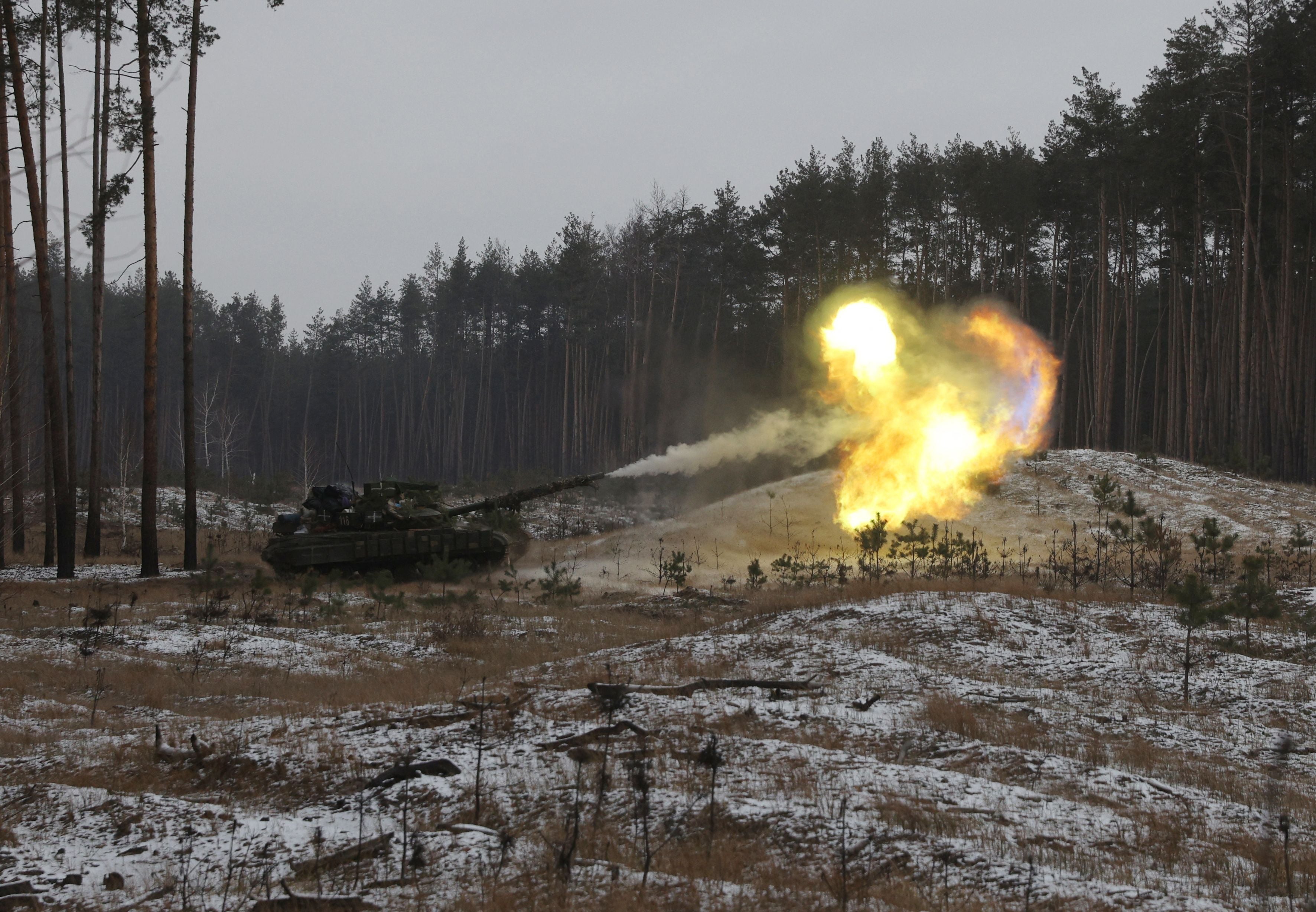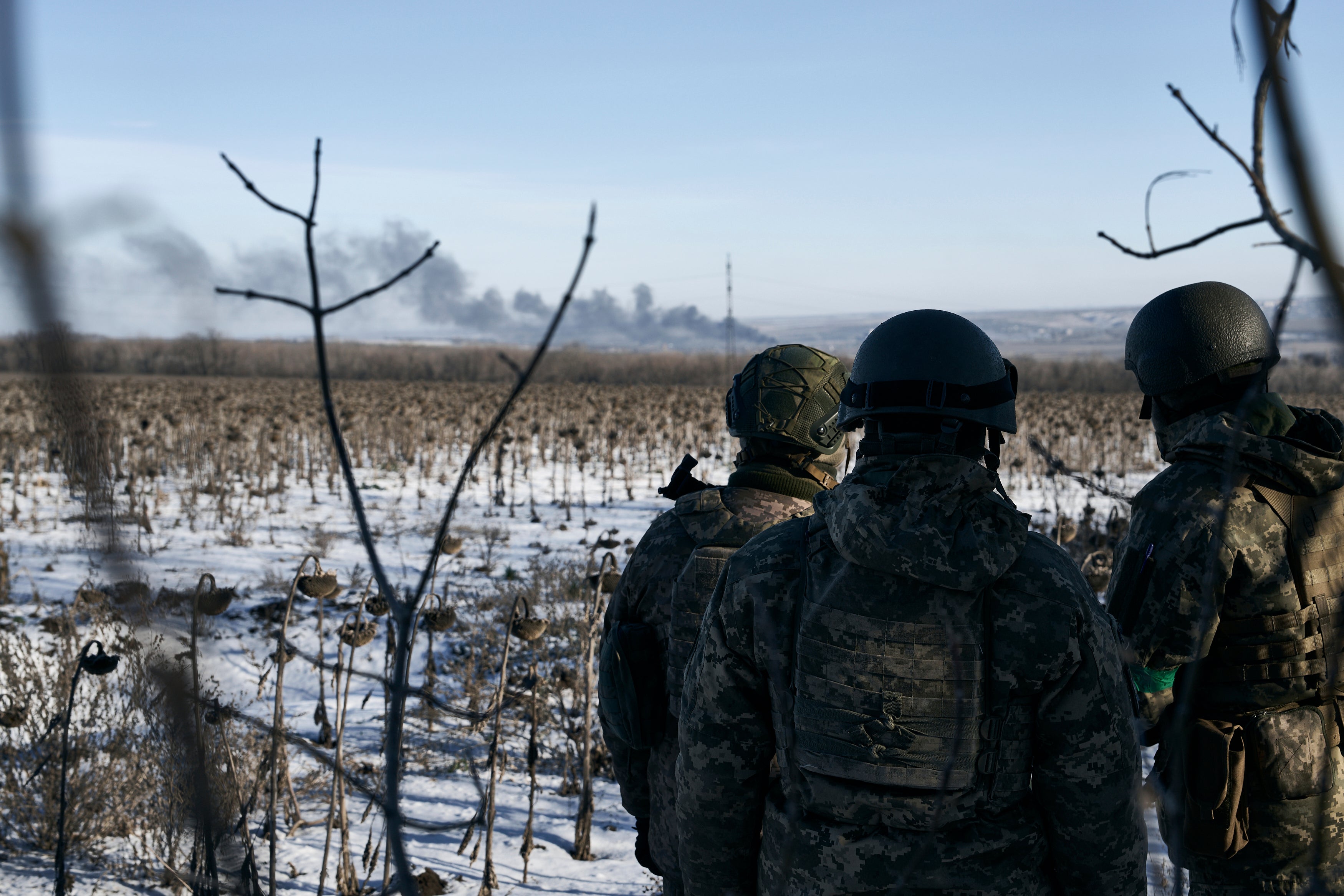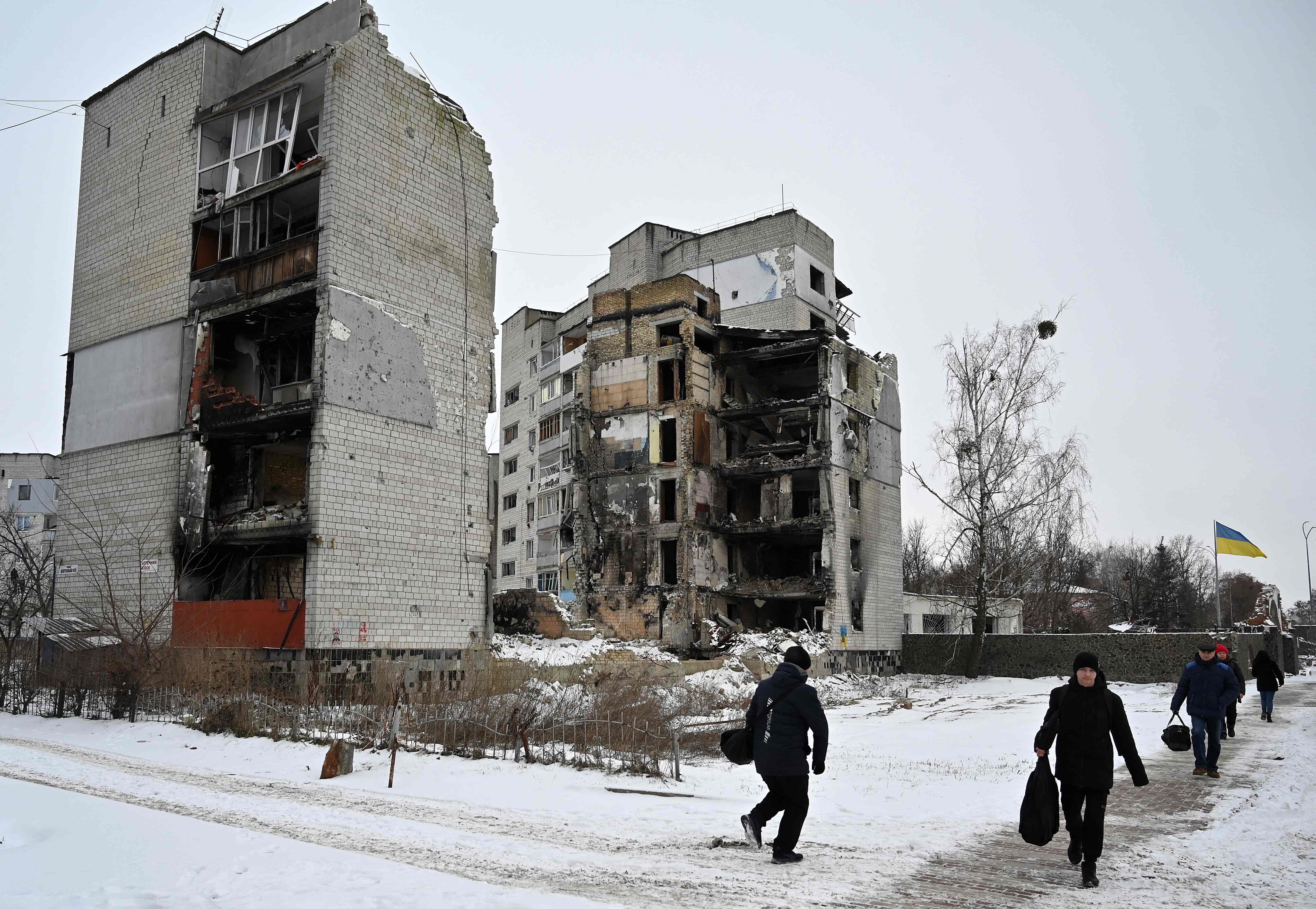Ukraine acknowledges Russian advances on Soledar as Putin’s choice of new commander raises questions
Meanwhile, torture allegations surface from Kherson after Russian retreat
Your support helps us to tell the story
From reproductive rights to climate change to Big Tech, The Independent is on the ground when the story is developing. Whether it's investigating the financials of Elon Musk's pro-Trump PAC or producing our latest documentary, 'The A Word', which shines a light on the American women fighting for reproductive rights, we know how important it is to parse out the facts from the messaging.
At such a critical moment in US history, we need reporters on the ground. Your donation allows us to keep sending journalists to speak to both sides of the story.
The Independent is trusted by Americans across the entire political spectrum. And unlike many other quality news outlets, we choose not to lock Americans out of our reporting and analysis with paywalls. We believe quality journalism should be available to everyone, paid for by those who can afford it.
Your support makes all the difference.Ukraine has acknowledged Russian advances on the besieged city of Soledar, which Moscow seeks as its most significant gain since a series of retreats late last year.
Russian soldiers are “moving over their own corpses” in the push for the city, Ukraine’s deputy defence minister Hanna Malyar said on Thursday, adding fighting was still fierce.
Serhiy Cherevatyi, spokesperson for Ukraine’s eastern military command, told Ukrainian TV there was constant shelling in Soledar.
“The enemy is trying to take the initiative and attack. But they are failing to break through our defences,” he said.
As many as 559 civilians, including 15 children, remained in the Donetsk city and could not be evacuated, regional governor Pavlo Kyrylenko said.
Meanwhile, Kremlin watchers are poring over Russia’s latest change of battlefield command after Valery Gerasimov, chief of the military’s general staff, was unexpectedly appointed by president Vladimir Putin to oversee the faltering invasion.
The appointment of Mr Gerasimov to lead the invasion was seen by Russian and Western commentators alike as an attempt to shift blame for setbacks in which Russia has lost around 40 per cent of the territory it had seized since February.
The defence ministry said the seniority of the commander in charge of the “special military operation” reflects the expansion of its scale and the need to improve organisation and command.

Mr Gerasimov’s deputies will be Gen Sergei Surovikin, the previous commander, appointed three months ago and nicknamed “General Armageddon”, Gen Oleg Salyukov and Col Gen Alexei Kim, deputy chief of the general staff.
Igor Korotchenko, a hardline military expert who is given generous space on Russian state television, said Mr Putin’s decision stemmed from Ukraine’s receipt of longer-range heavy weapons from the West and the prospect that it would soon receive Western armoured fighting vehicles and possibly battle tanks.
He said Mr Gerasimov’s arrival increased the likelihood that Russia might use battlefield nuclear weapons in Ukraine: “The appointment of Mr Gerasimov means that all means of destruction in the arsenals of the armed forces of the Russian Federation – without exception – can be used.”

Mr Gerasimov was appointed chief of the general staff and deputy defence minister by Mr Putin on 9 November 2012, three days after Mr Putin’s long-time ally Sergei Shoigu was made defence minister. Each of the men holds one of the three nuclear briefcases that can order a Russian nuclear strike.
In Kherson, allegations of torture at the hands of Russian troops have emerged after Moscow’s retreat from the southern city last November, following a trend set after the Russian military withdrawal from Bucha early in the war.
Ukraine’s top war crimes prosecutor Yury Belousov said authorities were investigating at least 10 sites where Russian occupiers had tortured hundreds of Ukrainians.
Troops are alleged to have used methods including electric shocks to genitals and other parts of the body, beatings and various forms of suffocation, according to interviews conducted by Reuters with more than one dozen alleged victims, members of Ukrainian law enforcement and international prosecutors assisting Ukraine’s investigation.
Oksana Minenko, a 44-year-old accountant who lives in the Ukrainian city of Kherson, said she was repeatedly detained and tortured by occupying Russian forces. She said that during several interrogations in the spring Russian forces submerged her hands in boiling water, pulled out her fingernails and beat her in the face with rifle butts so badly she needed plastic surgery.

Some of the thousands of alleged war crimes committed by Russian forces could be escalated to overseas tribunals if they are deemed sufficiently serious. The Hague-based International Criminal Court (ICC) opened an investigation into alleged war crimes in Ukraine weeks after the Russian invasion began last February.
The numbers that are emerging on the scale of alleged detentions and torture point to widespread and grave criminality in Russian-occupied territory, said British lawyer Nigel Povoas, lead prosecutor on a Western-backed team of legal specialists assisting Ukraine.
As Ukraine fights some of the fiercest battles for territory of the war so far, Western allies have escalated arms supplies to include weaponry thought too risky a few months ago. The United States, Germany and France last week pledged armoured fighting vehicles and now the focus has shifted to main battle tanks.

Polish president Andrzej Duda promised Ukraine a company of 14 German-made Leopard battle tanks, part of what he called an international coalition. Despite briefly seeming blindsided, Germany, whose permission would be required, suggested it would not block the move. Britain has also said it is considering sending tanks.
In Kyiv, Ukraine took a key step towards reforming its judiciary to meet European Union standards for a future bid to join the bloc.
Judges appointed the last of eight new members to a courts watchdog, after the EU made cleaning up the judicial system one of its main recommendations when it offered Ukraine candidacy last June.
Reuters and Associated Press contributed to this report



Join our commenting forum
Join thought-provoking conversations, follow other Independent readers and see their replies
Comments